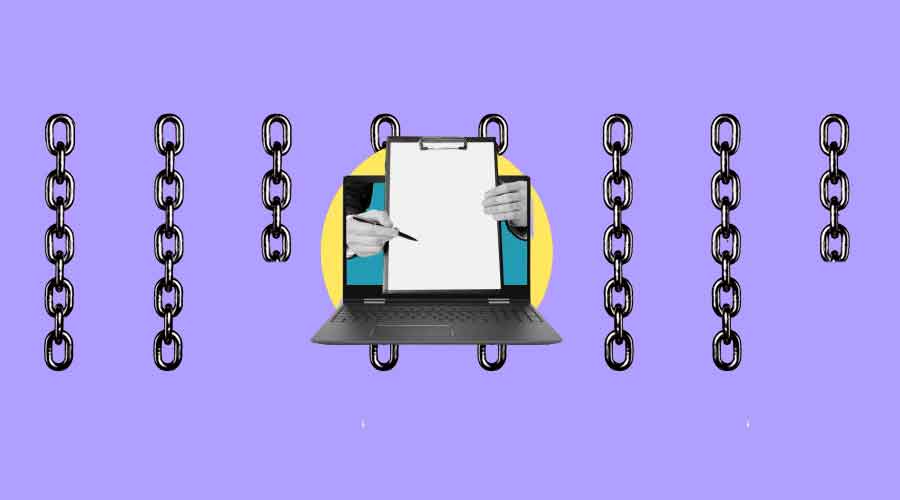 “Smart Contracts’ Real-World Leap: Oracles and Blockchain Data Integration”
“Smart Contracts’ Real-World Leap: Oracles and Blockchain Data Integration”
In the dynamic intersection of blockchain technology and real-world applicability, the advent of oracles in smart contracts marks a transformative leap. Smart contracts, while inherently secure, are traditionally confined to the information within their blockchain ecosystem. Oracles act as gateways, seamlessly connecting these self-executing contracts to the ever-changing realm of real-world data. This article embarks on an exploration of the pivotal role played by oracles, elucidating their functions, types, and the unprecedented impact they wield on decentralized applications. By bridging the gap between blockchain and real-world data, oracles unlock new potentials, enabling smart contracts to interact dynamically with external events, prices, and conditions, thus propelling the evolution of blockchain technology into a broader and more versatile landscape.
Understanding Oracles in Smart Contracts:
At its core, a smart contract is a self-executing agreement with the terms of the agreement directly written into code. While this makes smart contracts secure and tamper-proof, they are limited by the fact that they operate within the blockchain’s closed environment. Oracles address this limitation by facilitating the interaction between smart contracts and real-world data.
Functions of Oracles:
Data Feeds:
Oracles provide smart contracts with real-time data feeds from external sources, enabling them to react to changes in the external environment. This is crucial for applications such as decentralized finance (DeFi), where accurate and timely pricing information is essential.
Events and Triggers:
Oracles can trigger smart contract execution based on external events. For example, a weather oracle could trigger a smart contract that automates insurance payouts in the event of adverse weather conditions.
Connectivity to APIs:
Oracles can connect smart contracts to external application programming interfaces (APIs), allowing them to access a wide range of data and services outside the blockchain.
Types of Oracles:
Software Oracles:
These are oracles that collect data from various online sources, such as websites or databases. They rely on algorithms to ensure the accuracy and reliability of the data they fetch.
Hardware Oracles:
Hardware oracles are connected to physical devices or sensors, collecting real-world data and feeding it into smart contracts. This is commonly used in applications like supply chain management.
Consensus Oracles:
Consensus oracles aggregate data from multiple sources to provide a more accurate and reliable feed. They use consensus mechanisms to verify the correctness of the data.
Incentivized Oracles:
Incentivized oracles use economic models and incentives to encourage accurate reporting. Participants are rewarded for providing correct data and penalized for providing inaccurate information.
Advantages of Oracles in Smart Contracts:
Enhanced Use Cases:
Oracles expand the scope of smart contracts by allowing them to interact with real-world events and data. This enables a wide range of applications, from decentralized finance to supply chain management and beyond.
Increased Flexibility:
Smart contracts become more flexible and adaptable when they can access real-world data. This adaptability is crucial for applications that require dynamic responses to changing conditions.
Accurate Information:
Oracles, especially those using consensus mechanisms, provide a reliable source of data to smart contracts. This accuracy is essential for applications where precision is critical, such as financial transactions.
Challenges and Considerations:
Data Accuracy:
Ensuring the accuracy of the data provided by oracles is a significant challenge. Malicious actors may attempt to manipulate data feeds, leading to incorrect outcomes in smart contract execution.
Centralization Concerns:
Some oracles may rely on centralized data sources, introducing a level of centralization that contradicts the decentralized nature of blockchain. This raises concerns about single points of failure and potential manipulation.
Security Risks:
Oracles themselves can be vulnerable to attacks, compromising the integrity of the data they provide to smart contracts. Secure design and continuous auditing are crucial to mitigate these risks.
Incentive Structures:
Designing effective incentive structures for oracles is essential to encourage accurate reporting. Ensuring that participants are adequately rewarded for providing correct data and penalized for inaccuracies is a delicate balance.
The Impact on Decentralized Applications:
The incorporation of oracles into smart contracts has far-reaching implications for decentralized applications:
Decentralized Finance (DeFi):
DeFi platforms leverage oracles to obtain real-time price feeds for assets, enabling functionalities like decentralized exchanges, lending, and derivatives trading.
Supply Chain Management:
Oracles play a vital role in connecting smart contracts with real-world data in supply chain applications. This includes tracking the movement of goods, verifying authenticity, and ensuring compliance with predefined conditions.
The Future of Oracles in Blockchain:
As blockchain technology continues to mature, the role of oracles in smart contracts is poised to become even more critical. Ongoing research and development are focused on addressing the challenges associated with oracles, such as data accuracy and security concerns. The evolution of decentralized oracle networks, combining multiple oracles for consensus, is a promising development that aims to enhance reliability.




